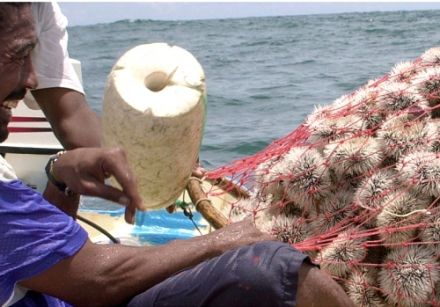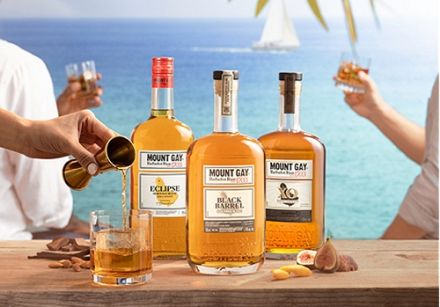 |
Culinary tour through Barbados
Barbados stands in splendid isolation as a proud and welcoming sentinel at the gateway to the West Indies. Being the most Easterly of the Caribbean islands, Barbados has for centuries been the potential first landfall for any sailors venturing Westwards. And so it proved to be for the Spanish and Portuguese adventurers who rode the winds of the prevailing North East Trades in the 1500's. They came in search of gold and riches but merely found a densely vegetated Island inhabited by a small population of Amerindians.
Though the Iberians opted not to settle on the Island, they did give it a name: "Los Barbados." General consensus is that this was derived from their fascination with the pendulous, aerial roots of the Bearded Fig Tree (A Ficus) which are reminiscent of a long, thick beard. "Barba" means beard and "barbados" translates to the "bearded ones"...hence the Island of "Barbados."
Here in the relaxed atmosphere of the islands, things move at a gentle pace. There is always time to linger and to savour the delights that abound here, a whole gamut of exotic fruits and vegetables nurtured by the warm breezes and tropical soil, including paw paws (papayas), soursop (guanabana), local cherries, taro, squash, breadfruit, yams and coconuts.
Barbados is considered the homeland of the flying fish. The Tourist Authority has even chosen it as its emblem, and it is a staple of the daily diet. You are as likely to find it included on a sophisticated restaurant menu as you are to find it in sandwiches sold on the beach. Here the fishing boats are painted in bright Caribbean hues, often in a burst of blue and yellow, the national colours. Returning to shore the fishermen provide the local tables with tuna, barracuda, turtle, mahi-mahi, lamprey, mackerel… and dolphin! Don't be alarmed however - no one is eating Flipper. Dolphin in Barbados refers to an ugly, albeit delicious, fish that is unrelated to the porpoise family. Other unique specialties here include Crane Chubb, a delicate fish caught by spear-fishermen on the Crane Reef, and "sea eggs," sea urchins that are served in broth and topped with breadcrumbs.

Wherever you go in Barbados you will taste chilies and thyme, the unofficial national Bajan seasoning. A peek into the island's history will shed some light on its culinary traditions. Long considered a last bastion of traditional British refinement, Barbados still retains numerous culinary traditions of the mother country. Added to these is an African influence that dates from colonial times when plantation owners brought over slaves from western Africa. They brought to the island their own language, artistic traditions, musical rhythms and culinary heritage which includes Coo-Coo, a dish made with cornmeal and okra; Jug-Jug, a mixture of Guinea flour and peas; and pepperpot, a spicy stew. Other cultures joined in adding to the melting pot of Bajan cooking, giving Barbados such dishes as roti, an Indian-Caribbean dish consisting of spiced meat placed in a chapati; and conkies, a mixture of cornmeal, coconut, pumpkin, raisins, sweet potatoes and spices steamed in banana leaves.

Many people believe that rum was being produced on the Mount Gay Rum Estate from as early as 1663. However, the first surviving written evidence of this is a legal deed dated 20th February 1703. This document lists the property and the equipment found on it, equipment essential for the manufacture of rum.
"Two stone windmills... one boiling house with seven coppers, one curing house and one still house."
This confirms that rum production was well underway by 1703, making Mount Gay Rum the oldest rum in Barbados, and more importantly, the world.
Barbados offers traditions that always seems new and fresh: a tropical paradise filled with rhythmic music, rich colours, and sandy beaches... No doubt while you are here in Barbados you will have ample opportunity to enjoy a few grogs, a whole range of temptingly-named rum punches to delight the visitor throughout long sun-drenched days.
Sea eggs: Barbados Fishery Division

-

 Recipes
Recipes
-

 Products
Products
-

 Entertaining
Entertaining
-

 Chefs
Chefs
-

 Hints & Tips
Hints & Tips
-

 Glossaries
Glossaries








